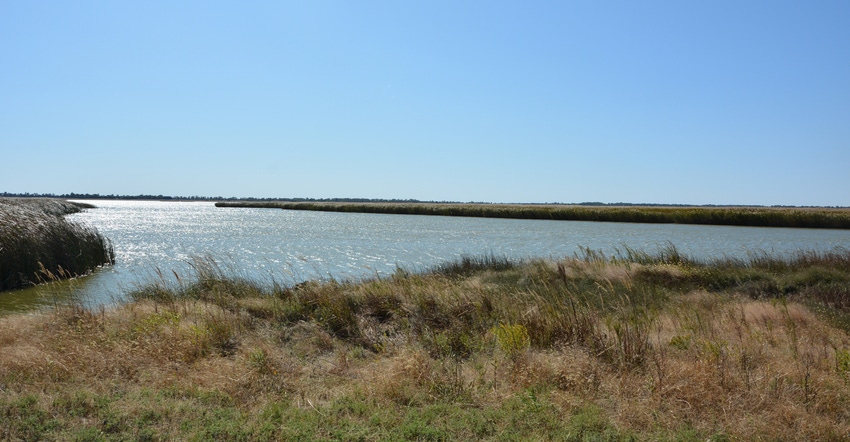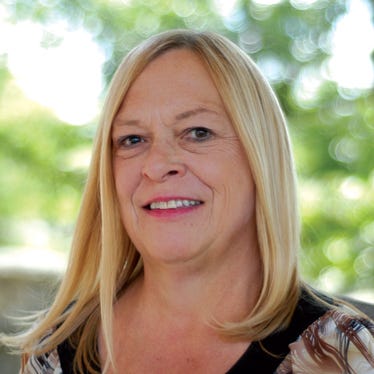
Fighting over water is nothing new in Kansas. The state, after all, has fought all the way to the Supreme Court — and won — over the right to a streamflow in the Arkansas River when it enters the state from Colorado.
The current fight that pits Quivira National Wildlife Refuge against local junior rights holders including irrigated farmers, cities and businesses took a turn for the better at the last minute when the refuge agreed not to request water and thereby force the Kansas Department of Agriculture’s Water Resources Division to administer junior rights to satisfy its impairment to allow more time to try to work out a way to resolve the problem through voluntary efforts.
There is hope that can happen. According to Orrin Feril, director of Big Bend Groundwater Management District 5, sound scientific studies show that drilling wells to pump groundwater into Rattlesnake Creek to increase surface flows into the reservoir will work to get the refuge the water it needs without forced reductions to irrigators. Farmers are also willing to implement water-saving technologies in an effort to reduce groundwater pumping.
Listening to the talk from local farmers at a recent public hearing in Stafford County, where the refuge is located, and following a few Twitter feeds on the issue is troubling. For one thing, there are some pretty harsh things being said that I find myself doubting folks really mean. It’s par for public discourse these days to take the gloves off, especially on social media. That doesn’t make it a good idea. Suggesting that fire departments ignore a call from the refuge for help shows just how angry folks are. That’s also not a good idea.
Among the most troubling aspects, though, is the suggestion that the “greater public good” or the “economic value” should be considerations in how water rights work. Kansas law is quite simple: first in time, first in right. The senior water right holder takes preference over all juniors. In case of impairment, the oldest junior has more rights than the youngest junior.
On the surface, I can understand the assertion that the economy of the region runs on agriculture, and it seems like that is of higher value than the recreational and environmental use in the refuge. As one farmer on social meida put it, “they want to wreck our livelihood so a bunch of birds have a place to land and a bunch of people can come out and take their picture.”
It's a little more complicated than that given that Quivira is a rare inland system of salt marshes and a vital resting and feeding point for thousands of birds, including the gravely endangered whopping crane.
But my biggest concern is that farmers should tread very carefully when the discussion of water going to the greater economic engine, lest they find their water right up against a municipal industrial project or an oil company doing horizontal fracking. It’s not exactly like either of those things haven’t happened in the past or are likely to in the future. If we find ourselves attaching the right to the highest dollar generator, agriculture is likely to come out on the losing end.
The best solution for GMD 5 is to find a way for everybody to work together to solve a problem that is truly everybody’s problem and do it in a way that doesn’t cause grave harm to anyone. The good news is that there is no shortage of groundwater in GMD 5. The aquifer recharges rapidly, and there is little evidence of over appropriation as in the case farther to the west. The issue is streamflow that is impacted by groundwater levels. It should be a solvable problem.
About the Author(s)
You May Also Like






